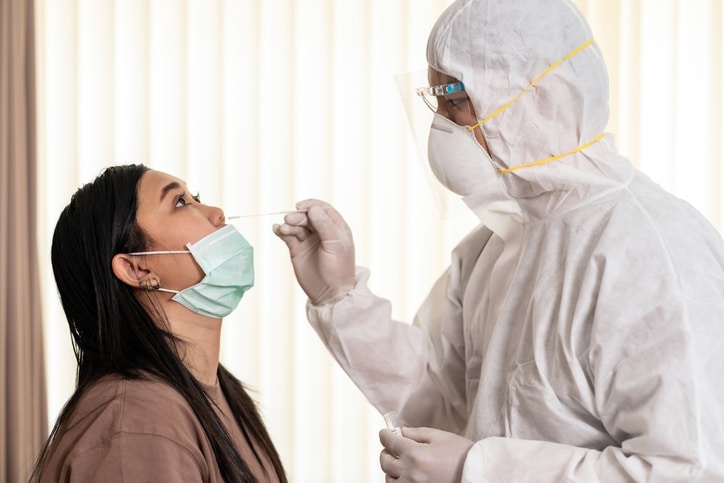A new study shows that natural immunity against COVID-19 is not long-lasting.i
Researchers at Yale University found that unvaccinated people who have caught COVID can expect to be re-infected every 16 to 17 months.
The findings contradict the notion that recovering from COVID provides a lifetime of protection. Instead, the COVID virus is more like the flu or a cold, which we can get every year or so.
The Unvaccinated Can Expect to Catch COVID Every 16 Months
The 16-month estimate is an average, the researchers said. Some unvaccinated people may get re-infected after just a few months. It could take years for others.
“Re-infection can reasonably happen in three months or less,” said Professor Jeffrey Townsend, who led the study.ii
“Just like the common colds, from one year to the next you may get re-infected with the same virus,” he said. “The difference is that COVID-19 has proven to be much more deadly.”
19% of Recovered COVID Patients Lack Crucial Antibody
A separate study at King’s College London found why some unvaccinated people may get re-infected after only a short time.iii
Researchers discovered that about a fifth of people who recover from COVID lack an important antibody that helps prevent another infection.
The scientists analyzed antibodies in 8,193 unvaccinated previously infected adults. Nineteen percent of them did not have anti-N antibodies.iv
Anti-N antibodies are crucial to strong immunity against COVID, the scientists believe. They destroy the virus by targeting one of the four structural proteins that form it.
The study found that subjects who tested negative for anti-N antibodies were more likely to be smokers and have medical conditions that make their immune system less responsive. They were also more likely to have had a mild case of COVID rather than a severe one.
COVID Is a Seasonal Infection
Another recent study shows that the next few months may be particularly dangerous for the unvaccinated.
Researchers at the Barcelona Institute for Global Health confirmed that COVID-19 is increasingly a seasonal illness that spreads more readily in the winter.v
The study found that COVID—like colds and flu—is transmitted more readily when temperatures and humidity are low.
“Our findings support the view of COVID-19 as a true seasonal, low-temperature infection, similar to influenza,” said Dr. Xavier Rodo. He led the study.
The bottom line: As we reach the winter months—even if you’ve had COVID—it still makes sense to get vaccinated, especially if you have underlying health conditions that might impair your immune system.
Get the Latest Breaking News About Coronavirus Here
- The Best COVID Vaccine Choice. One vaccine is proving to offer stronger protection than others. Click HERE to find out more.
- Many Seniors Take Drugs That Could Reduce COVID Vaccine Response. Are you one of them? Click HERE to find out.
- Colin Powell: Why the COVID Vaccine Failed to Save Him. Former Secretary of State Colin Powell died of COVID-19 even though he was vaccinated. Why didn’t the shots work for him? Click HERE to find out.

